02:44
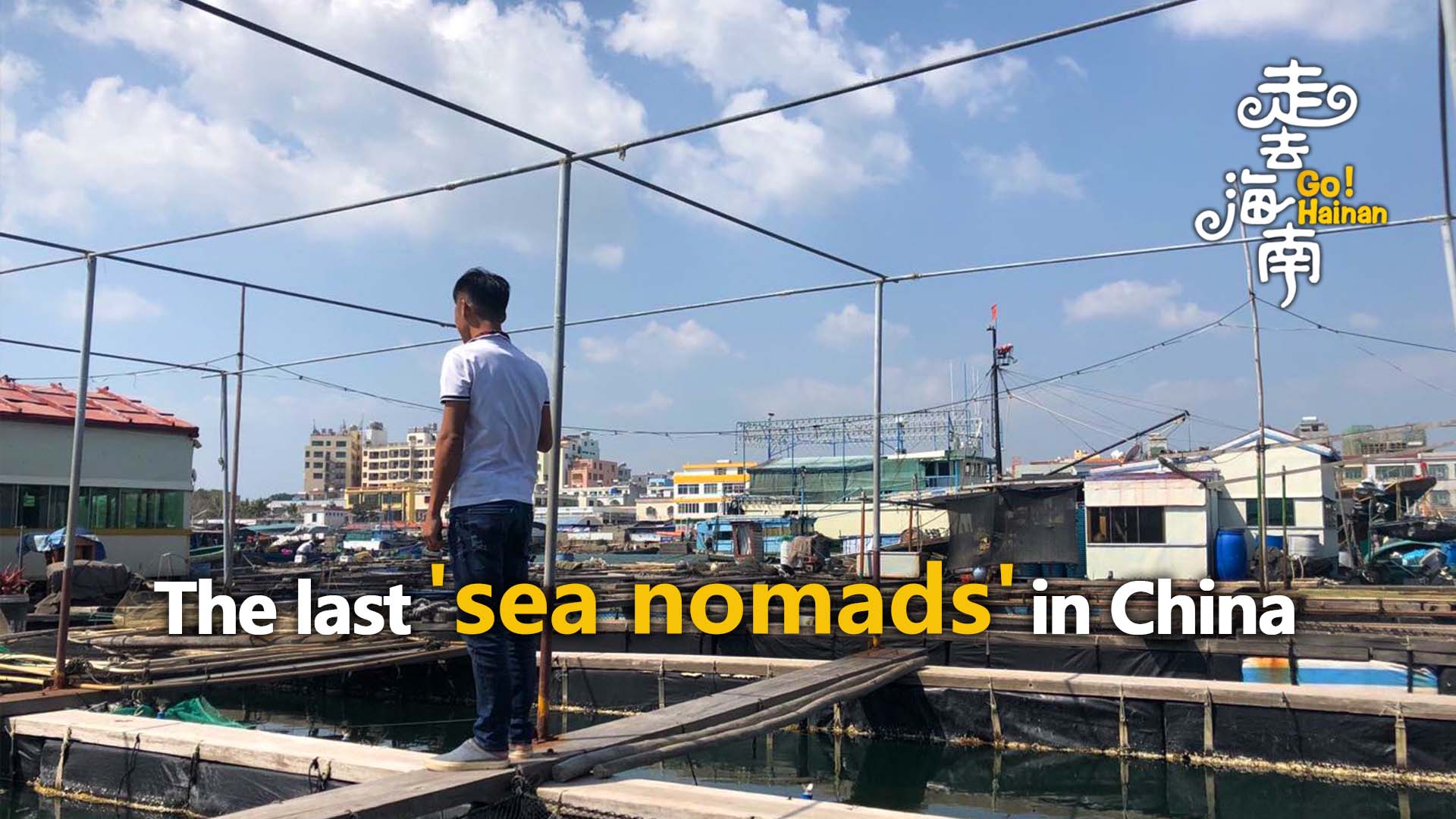
In the cold light of dawn, the port bustles with fishermen unloading their fresh catches from the previous night at sea, a fishy smell lingering in the air and the engine sounds of fishing vessels pounding in the distance. This is how a day starts at the Xincun fishing port of Lingshui County, where generations of fishermen have sought harbor off the east coast of China's southern island province of Hainan.
Lingshui is home to the largest Tanka community, a group known as "sea nomads" for their floating lifestyle.
The fishing community's ancient ways of life remain a curiosity for visitors to Hainan. Seen from above, the offshore village is a sprawling network of interconnected enclosures with tiny huts built on top and narrow wooden planks for pathways. However, for the village's water-bound inhabitants, their centuries-old lifestyle is about to change.
Watch: Bird's eye view of Hainan: A village on the sea
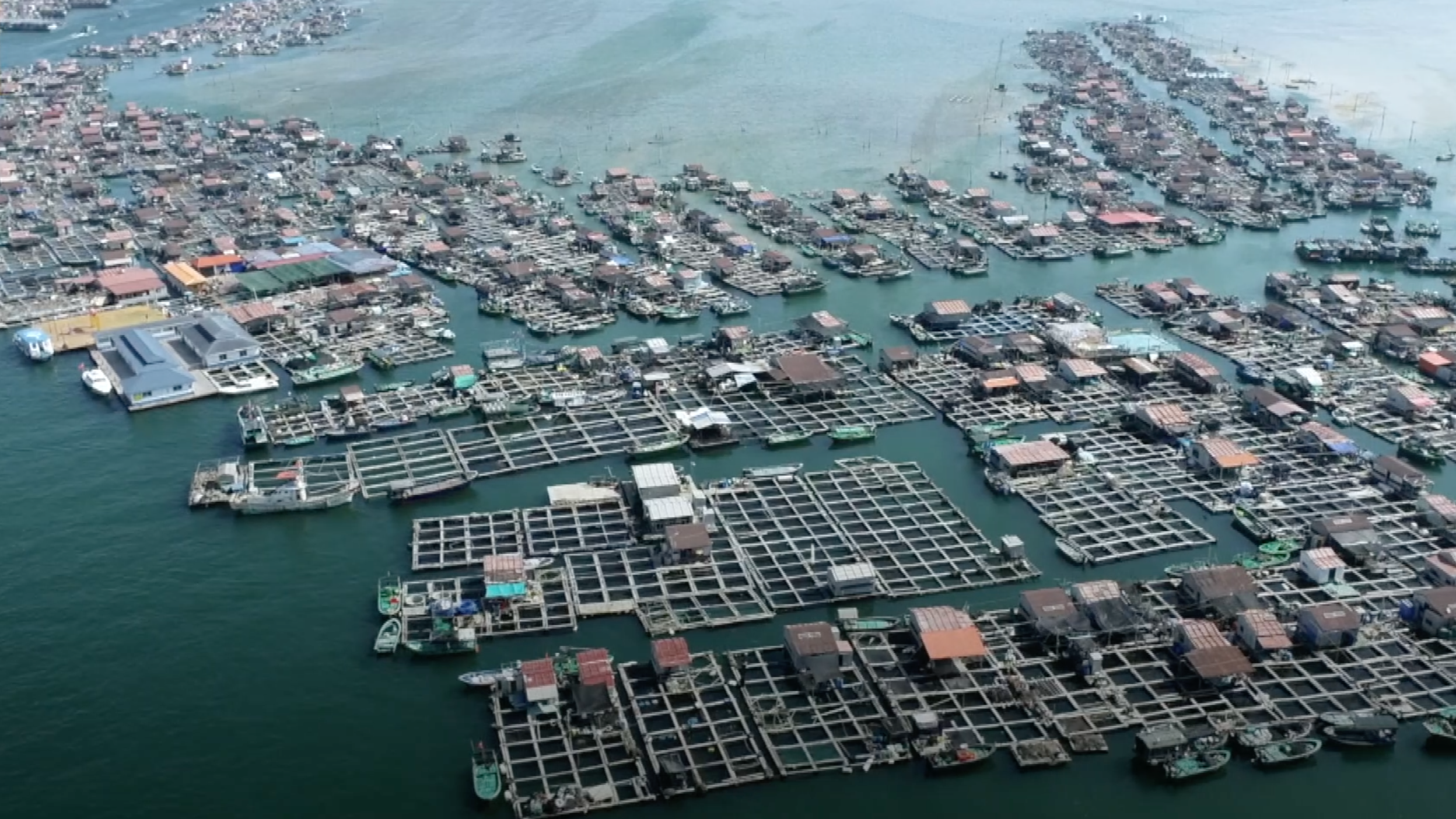
Drone footage shows a bird's-eye view of the Tanka Village in Lingshui Li Autonomous County, south China's Hainan Province, January 27, 2021. /CGTN
Drone footage shows a bird's-eye view of the Tanka Village in Lingshui Li Autonomous County, south China's Hainan Province, January 27, 2021. /CGTN
Feng Guowen's family owns one of the floating fish farms. Like most of their neighbors, the fisherman and his wife occasionally come to the rafts to tend to their fish. But until three years ago, the cramped dwelling on the sea with barely a place to stand was all the couple and their two children knew as home.
Feng and his wife are part of a generation of Tanka transitioning from their old life at sea and a new life on land. While adults go fishing and manage their aquaculture farms at sea, the elderly and children stay in concrete homes on the shore. It is a safer living situation for obvious reasons. When a typhoon hits, everyone would retreat to the shore for shelter, Feng said.
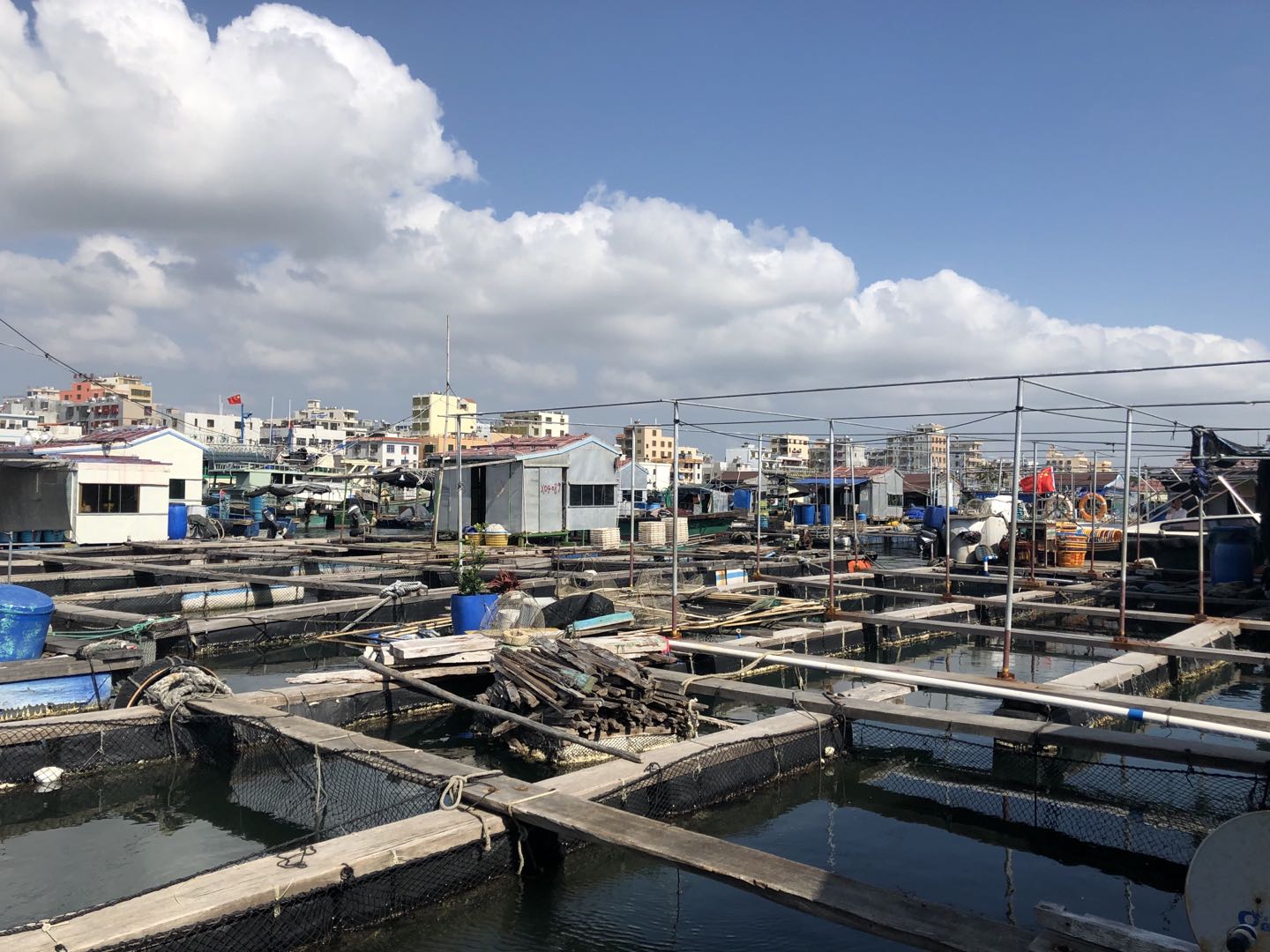
A floating village off the coast where the Tanka people live and work on fish breeding rafts, Lingshui Li Autonomous County, Hainan Province, January 27, 2021. Zhou Minxi/CGTN
A floating village off the coast where the Tanka people live and work on fish breeding rafts, Lingshui Li Autonomous County, Hainan Province, January 27, 2021. Zhou Minxi/CGTN
Only a generation ago, the security of being on stable ground was an unattainable luxury for the Tanka, who, for over 300 years, clung to a perilous life among the waves from cradle to grave.
The name "Tanka" comes from the Chinese word for "egg" (dan), describing both the shape of boats people lived in and their fragile existence. The group is believed to be descendants of Han Chinese who had been deemed pariahs in ancient times and banished from the land, according to Liang Zhenyang, president of the Lingshui Association for Tanka Culture.
Liang still remembers being tied to the prow of his family's boat as a child, because of the constant storms they used to encounter at sea. This was despite that his father suffers from seasickness, the 39-year-old told CGTN.
The Tanka's way of life was never a choice, but rather desperate means to survive in brutal conditions. "We would get scared… When a storm came, we would pray to the sky and the sea for our safety," Liang said.
I was born on a boat, and I went to school on a boat.
- Zhang Guihua
Now in her 60s, Zhang Guihua has seen it all. When she was a young girl, there was nothing else but fishing in their small world confined to a boat.
"I was born on a boat, and I went to school on a boat," she told CGTN. Zhang was nine when she started first grade. She was among the first group of Tanka children to receive education since 1969, when a makeshift classroom was set up aboard a boat for the first time.
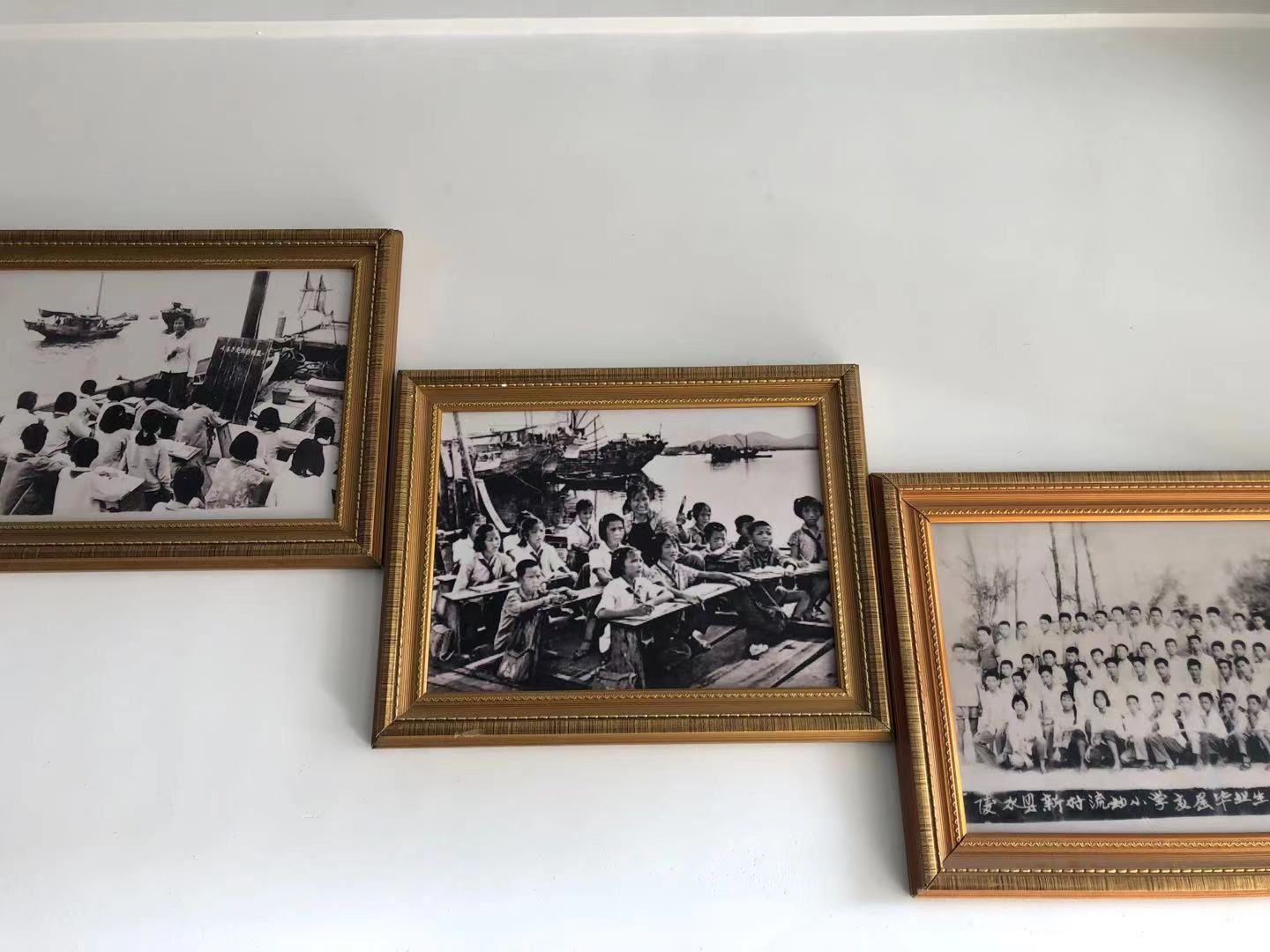
Old photos showing Tanka children having classes on the boat are hung on the wall of the Fishermen Primary School, Lingshui Li Autonomous County, Hainan Province, January 27, 2021. Zhou Minxi/CGTN
Old photos showing Tanka children having classes on the boat are hung on the wall of the Fishermen Primary School, Lingshui Li Autonomous County, Hainan Province, January 27, 2021. Zhou Minxi/CGTN
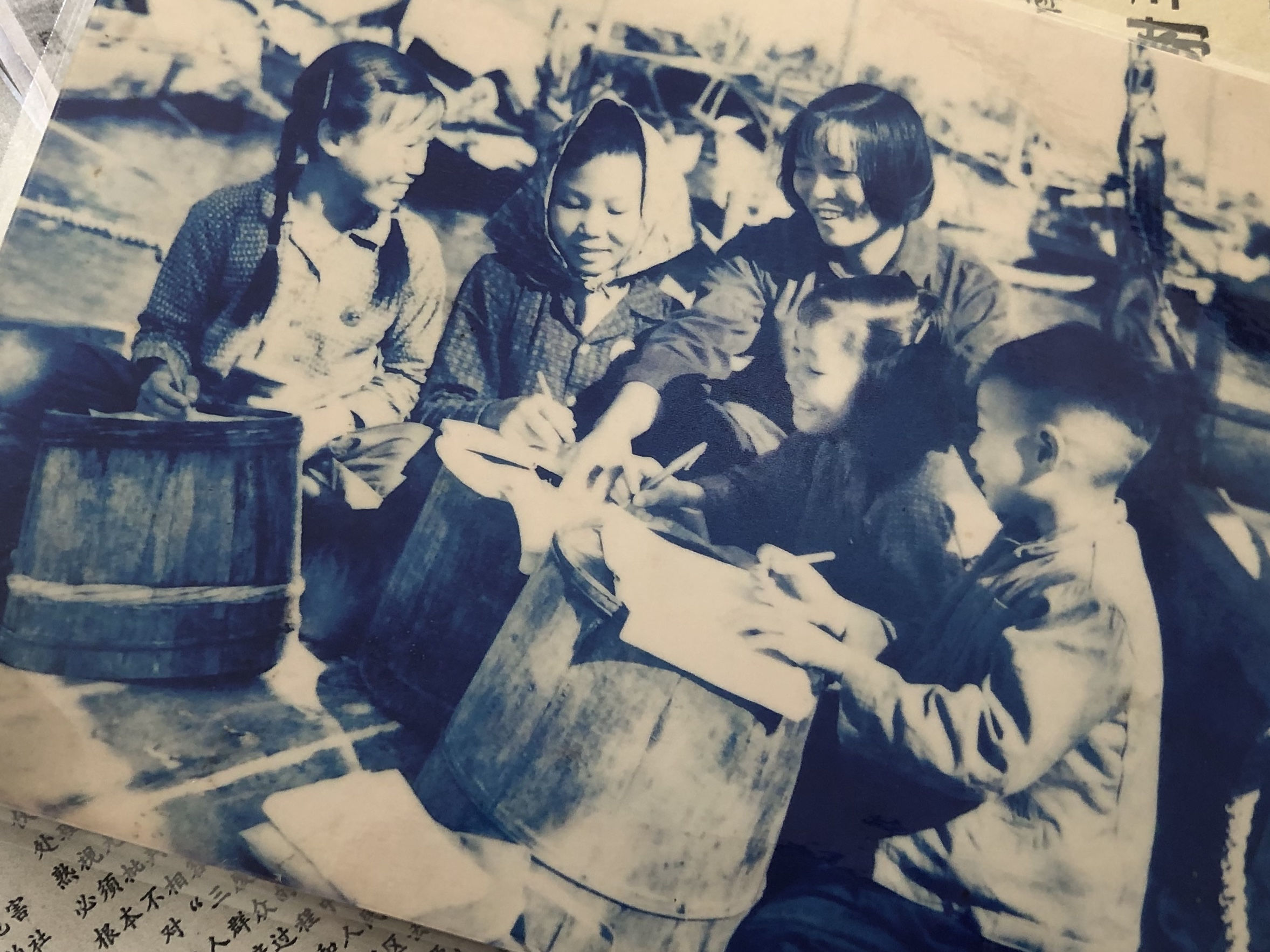
An old photo shows Tanka children studying on a boat with fish barrels for desks in 1969. Zhou Minxi/CGTN
An old photo shows Tanka children studying on a boat with fish barrels for desks in 1969. Zhou Minxi/CGTN
In the olden days, it was unusual for Tanka girls to go to school because the fishermen's families did not think women needed an education. But Zhang, who was the leader of her class, had a different future in mind. After her husband, who is also a Tanka, found a cleric job at a bank in town, her family moved onto dry land and never looked back.
In the 1980s, the Tanka began to disembark en masse. Many settled on fish farms as a bulk of the fishing community switched to more lucrative – and less dangerous – aquaculture. The floating school for fishermen's children was also moved onshore, and a boat would ferry the children from their homes on the sea to the shore. Today, as most Tanka families relocated to the land, the daily boat rides to school have become a thing of the past.
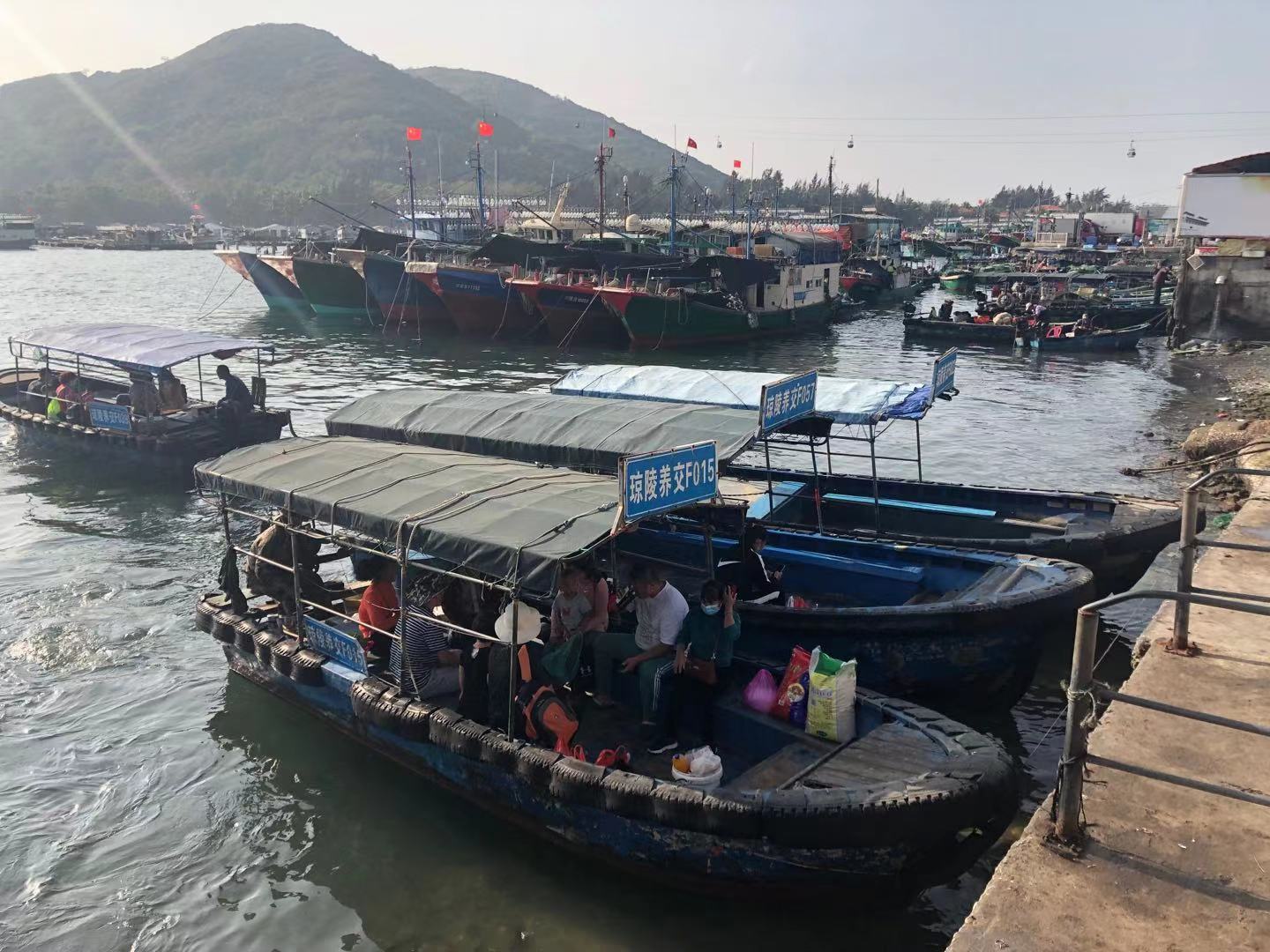
Boats known as "buses on the sea" ferry people between the Tanka village and the shore, Lingshui Li Autonomous County, Hainan Province, January 27, 2021. Zhou Minxi/CGTN
Boats known as "buses on the sea" ferry people between the Tanka village and the shore, Lingshui Li Autonomous County, Hainan Province, January 27, 2021. Zhou Minxi/CGTN
It used to be the better-off and open-minded Tanka parents who sent their children to school, because the only future awaiting these children was pulling fish nets, said Wang Jinzhu, principal of the Fishermen Primary School, where over 80 percent of students come from Tanka families.
"Now there are more possibilities. The parents are eager for their children to do well academically and have jobs other than fishing," Wang told CGTN. "Many people now understand that education is key."
Some older fishermen also realize that having literacy helps them keep up with the rapidly modernizing fishery industry, Wang explained. "They will need knowledge to operate those big boats and run large-scale fish farms on the far sea," Wang said, pointing at the large fishing vessels berthed at the port.
All this may portend sweeping changes to the Tanka lifestyle. Overhead, cable cars are ferrying tourists to the nearby islet. Meanwhile down the coast, posh residential condos have sprung up along the bay while holiday-makers cruise the waters onboard sleek yachts. Amid an ongoing gentrification campaign, there are concerns within the Tanka community that new environmental requirements could bring an end to traditions they hold dear.
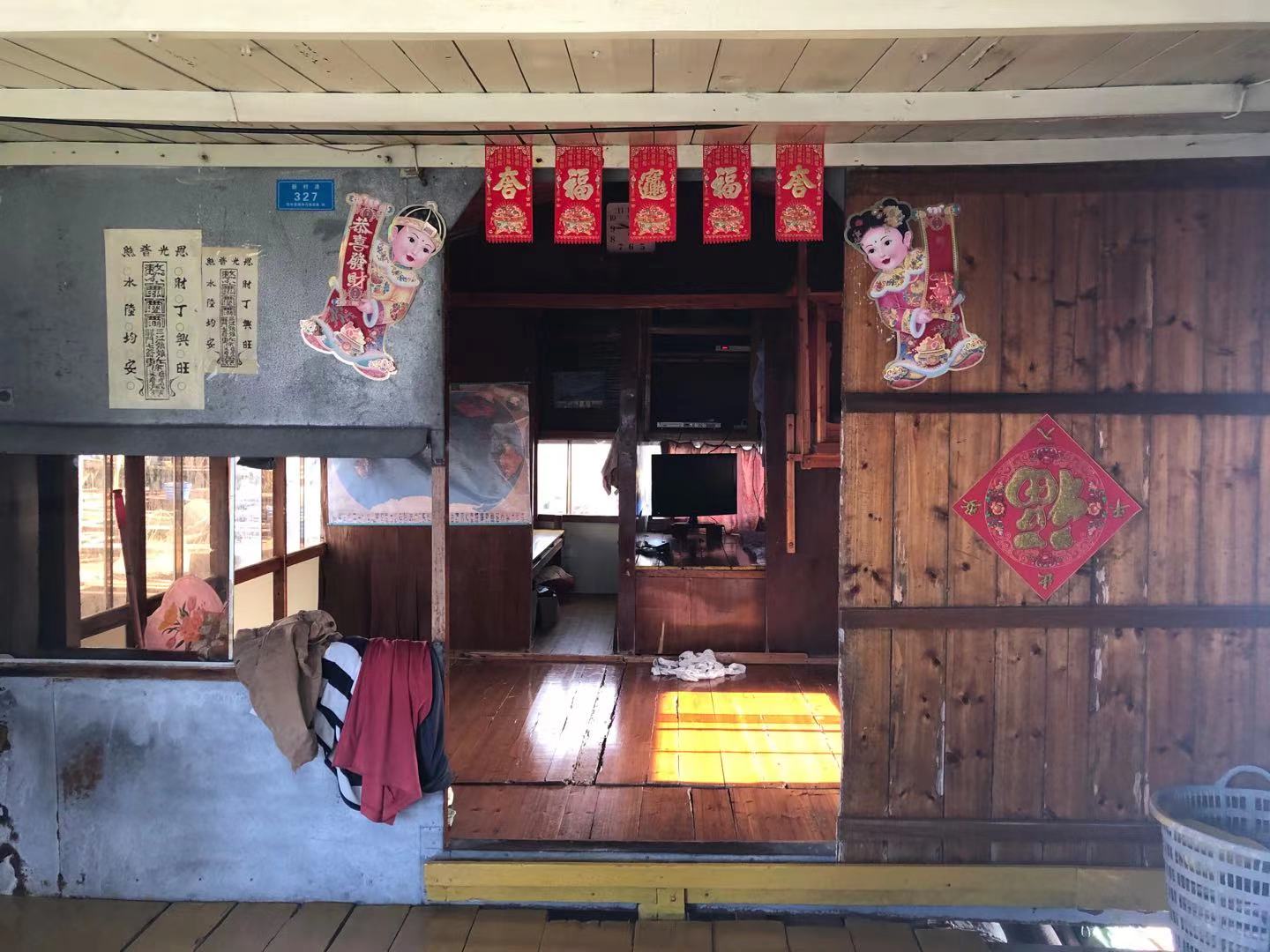
A house aboard a fish raft on the sea, Lingshui Li Autonomous County, Hainan Province, January 27, 2021. Zhou Minxi/CGTN
A house aboard a fish raft on the sea, Lingshui Li Autonomous County, Hainan Province, January 27, 2021. Zhou Minxi/CGTN
Zhang Xueyong was one of the first Tanka to go to college in a different city. Now working in a concrete office building, he is the village chief for what was formerly a fishing fleet. Zhang's family moved onshore in the late 90s. With a tourism boom at their doorsteps, he opened a floating restaurant in 2014.
Even if they have the chance to move away, most Tanka will eventually return home to serve their community, Zhang told CGTN. While the 44-year-old appreciates the safety and convenience on land, Zhang said that deep down, he feels his home is on the sea.
"We always go back on the boat on Chinese New Year's Eve, because we believe our ancestors' spirits are there," Zhang said. "Many older people are still not used to living on land."
Let the people move on to other industries. So they don't have to leave their livelihoods to fate.
- Liang Zhenyang
Before long, a new generation may not share those sentiments. Feng's children, aged 14 and 6, have adapted to life on land and rarely come to their parents' rafts these days. They speak Mandarin like other local children instead of the Tanka language – a dialect close to Cantonese. Nor do they know the "saltwater songs" their ancestors used to sing on boats. It is easy to see why the Tanka children growing up onshore with their smartphones no longer see themselves as a floating boat people.
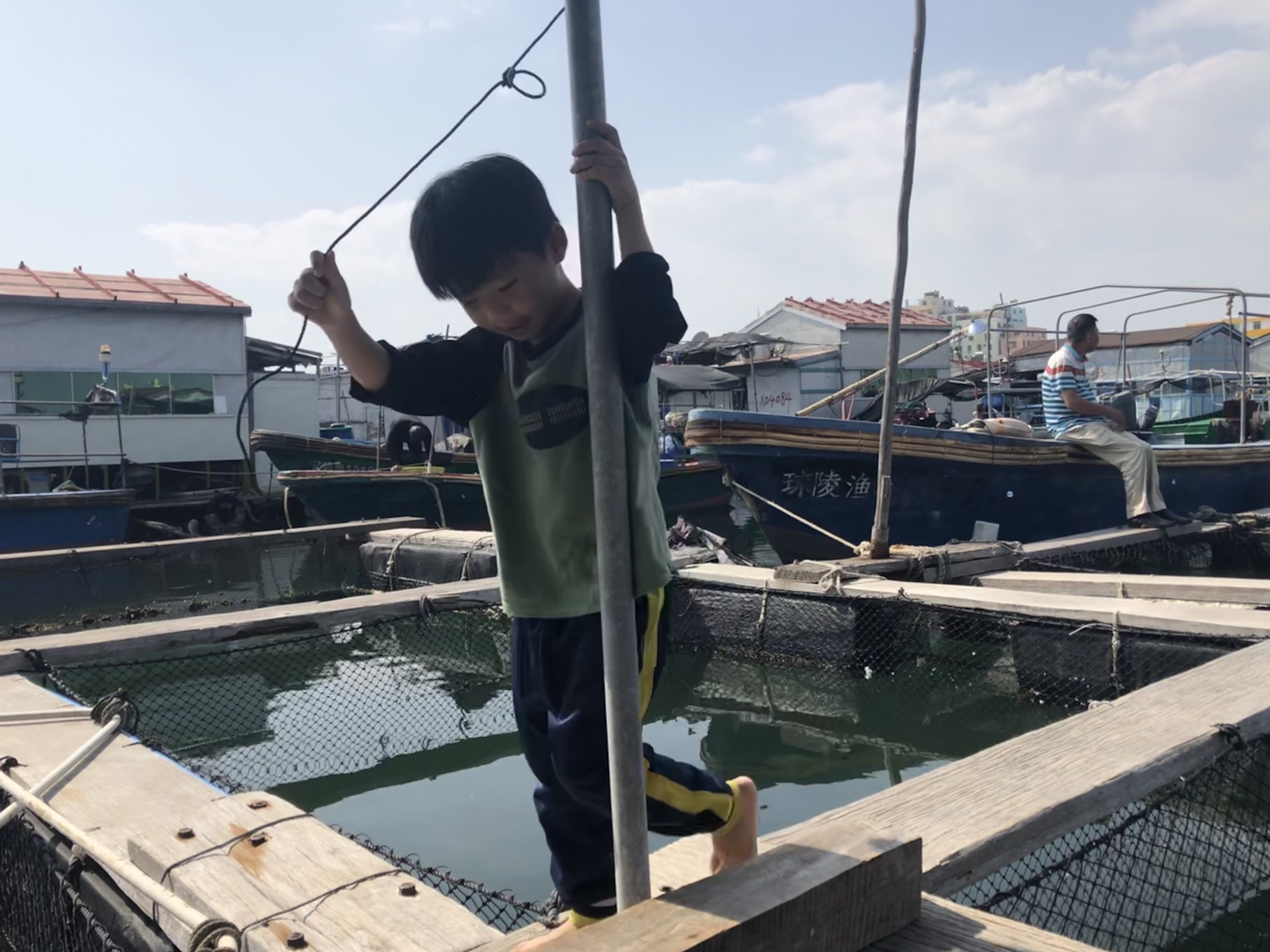
A little boy plays on his parents' fish raft, Lingshui Li Autonomous County, Hainan Province, January 27, 2021. Zhou Minxi/CGTN
A little boy plays on his parents' fish raft, Lingshui Li Autonomous County, Hainan Province, January 27, 2021. Zhou Minxi/CGTN
But Liang, who also returned home after spending some time in big cities like Guangzhou and Shenzhen, is optimistic about the future.
"As this place becomes an international tourist island and now a free trade port, the Tanka people's living conditions are getting better," said Liang, who started an e-commerce business selling fresh fruits and seafood produce to the mainland. Speaking as a representative for his community, the millennial entrepreneur has no qualms about the Tanka village turning into a commercialized tourist attraction in the near future.
"Let the people move on to other industries. So they don't have to leave their livelihoods to fate," Liang said. "Our children and grandchildren will live a better life."
Videographers: Bai Jiangang, Li Liang, Qin Xiaomeng, Li Anshu
Video editors: Zhang Dian, Zhou Minxi
Reporter and writer: Zhou Minxi
Producer: Zhang Junfeng
Cover photo: Yu Peng

